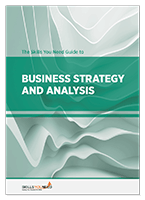8 Steps to Building a Superb Real Estate Team
You have heard of the adage, "it takes a village to raise a child."
Well, in the real estate realm, it doesn't take a village—but a real estate team to build a successful business.
So, how do you build a real estate team? Better yet, where should you even begin? If you are ready to become a leader, we'll let you in on a little secret. Building a superb real estate team isn't going to be easy, and you'll make mistakes along the way.
But to establish a real estate empire, you've got to give precedence to building a real estate team. And not any team, but a superb real estate team. Let's take a look at the seven steps which will help you build a superhero real estate team.

1. Make Sure You Have the Business
When is the right time to make your first hire? Well, many people will tell you it's when you start making 50+ transactions per year.
After all, 50 transactions are the industry benchmark.
We won't argue with that. But the right time to make your first hire is when you have enough resources and business to justify it.
As a realtor, you have many responsibilities. You need to spend time doing the following:
- prospecting for leads
- meeting with clients
- evaluating the market
- showing properties
- preparing contracts
- promoting properties
- advancing your knowledge, etc.
All these tasks are critical for enhancing your career and you can't skip them. But as your business grows, it becomes more challenging to do these tasks.
You find yourself sacrificing new leads to find time for other critical tasks. At this point, building a real estate team would be justifiable. But because you've reached this point doesn't mean you should assemble a 10-person team.
Keep in mind that not every real estate role/position will be right for your business. For instance, you could enjoy hiring an admin and a buyer's agent. But you might not need to hire a loss mitigation manager.
Hiring should be a continuous process. As your business grows, you will find yourself hiring for other roles a few years down the road.
2. Set Team Goals
You know you need goals for your team, but establishing the right ones can be tricky. It has to motivate your team, fit individual roles, and align with your company’s objectives.
The first step in setting team goals is to know what you want to achieve. Consider the reason for assembling a team. Once you’ve determined what you want to achieve, start by setting SMART goals. Typical goals might be to:
- close 20% more deals each month
- grow revenue by 10% each month
- respond to leads within 30 minutes of contact
Setting team goals is important because it will help you determine how many team members to hire. The more aggressive the figures, the more staff you need, and vice versa. It can also help you measure your company’s performance because what gets measured gets done.
3. Get Your Systems in Order
Before you start recruiting, ensure you have the resources needed to help teamwork. Most realtors start with hiring then systemise everything later on. While this might seem workable, especially if you're on a tight budget, it can prove costly down the road.
To attract top talents, you'll need your system up and running. Keep in mind that most if not all candidates will want to know what system you use for:
- transaction management
- commission reporting
- referral marketing
- communication and collaboration
This information can help them visualize your competitiveness in the industry. It can also help potential hires picture what their typical day will look like. According to real estate coach Jan O' Brien, these are the systems to put in order.
Business Goals, Vision, and Values
Your business goals and values should paint a picture of where you're going. Potential hires will want to know this information. They will want to know your goals, how they can help you achieve them, and the plan you have to meet these goals.
Branding
Your branding creates people's perception of your products, vision, and content. A strong brand will earn you some credits in the eyes of potential hires. To build a strong brand, pay attention to the logo, colors, fonts, and slogan your team will use.
Tools and Software
What tools does your business use to foster team collaboration and productivity? What about lead generation? Do you have tools for that, or will your team depend on cold calling? Avail this information in your hiring bulletin.
Transaction Management System
When recruiting top talents, mention the transaction management software you use. Top agents want a simple and effective system. They want a system that can take them in and out in as little time as possible.
Database and Referral System
What system do you use for contact management? What about a referral system? Investing in these systems can give you an edge over your competitors. It can also show potential hires that you're ahead of the technology curve.
Marketing & Advertising
Your choice of marketing methods will determine the likelihood of generating leads. It will also determine how fast you can get them to convert. What marketing channels do you use? A combination of both inbound and outbound marketing can earn you some credits.
Accounting & Financial Reporting
Potential candidates will want to know what systems you use for:
- accounting
- calculating commissions
- reporting
So having these systems up and running is critical.
Communication & Collaboration
The success of any real estate deal depends on human interactions. So effective communication is vital. You could streamline your communication by using tools like Slack, Asana, or Trello.
4. Figure Out Your Ideal Organizational Structure
Your organizational structure lays the foundation for your real estate team. So, take your time to figure out your ideal organizational structure. Plan on the number of hires you intend to make. This can help you answer the following questions:
Will you need a personal assistant or a transaction coordinator?
Does your company need departmental managers or supervisors?
How many team members will you need to bring onboard?
Potential candidates will want to know what opportunities might be available for them. It might be difficult to achieve sustainable growth without a perfect organizational structure.
So, how do you build a perfect organizational model?
Start by creating job descriptions. You don't have to put names on the organization chart at this point. It will help you figure out what skills and qualifications you need on your team and who's best suited for the role.
Next, determine your business needs based on your current transaction volume. Do you need marketers? If so, how many sales agents will you need?
Having your organization structure will ensure the best use of the available resources.
The only problem is figuring out the ideal team structure for your business. There are many ways to structure your real estate team. According to Sean Moudry, a leading broker, the three best real estate team models to consider are:
Mentor/Mentee Model
In this model, you recruit new agents in exchange for a percentage of their commission.
The goal is to mentor recruits and train them to become rockstar real estate agents. The new recruits will leave the team after the training period is over. Most brokerages mentor recruits for a period of 12 to 24 months.
You’re responsible for mentoring them and teaching them the market dynamics. But, you’re not responsible for bringing in leads or paying for their marketing expenses.
Team Lead Model
As the name suggests, this real estate team model focuses on the team leader’s personal brand. This model centers its efforts around a community or neighborhood.
In this structure, the team leader provides resources to the team members. The team members then use the availed resources to promote the team leader’s brand, not their own.
Since you’re creating brand awareness, excellent customer service is critical. In this model, the team leader handles all the listings. The team members take on the marketing and other brand promotion roles.
Lead Team Model
Rather than focusing on the leader, the Lead Team Model is all about lead generation. This model relies on advertising to bring in leads from different marketing channels. Successful brokerages that follow this model divide their teams into two categories:
Inside sales team - responsible for lead generation, pre-qualification, and follow-ups.
Outside sales team - responsible for negotiations, conducting showings, etc.
Because this model relies on advertising, it’s the most expensive to operate. But if you do it right, this model can scale your business to unimaginable heights.
5. Define Your Offering as an Employer

If you want to attract top talents, you must be willing to offer an attractive benefits package. According to Genesis Associates, 40% of employees consider monetary incentives a top motivator.
And real estate is no exception. To attract top talents, you'll need to offer attractive commission splits and bonuses.
Some top producing brokerages offer some version of an agent salary plus commissions. Others offer salaries, commissions, bonuses, and profits. It's up to you to determine what your company can offer to attract top talents.
If your company can't offer attractive compensation, look for alternative ways. For instance, you could provide growth opportunities, paid vacations, remote working, etc.
6. Use Personality Testing to Identify Top Talents

Millions of people are looking for online careers they can pursue due to the pandemic.
That said, don’t fall for the temptation of hiring the first person that shows up in your office.
Hiring candidates with the right skills, personality, and experience is critical.
A bad hire can cause your brokerage time and money. So, make sure to screen all the potential hires to ensure they have the personality required for the job.
To achieve that, you may need to conduct personality tests. Many personality assessment tools can help you. Here are a few personality assessment tools you might want to try out.
- DISC analysis
- Caliper profile
- Gallup StrenghFinder
- Myers-Briggs Type Indicator
- 16 Personality Factor (pf) Questionnaire
These tests also analyze the decision-making, information gathering, and interaction style.
Pro Tip
Never use a personality assessment tool as the sole deciding factor for who to hire. The right candidate should have both the skills and personality for the job.
7. The Implementation: Hiring Team Members
So now you have a perfect organizational structure and your systems up and running. It’s time to get to the hiring part of building a real estate team.
But what order should you follow?
Following a specific order that industry professionals have approved can do the trick. Here’s the order to follow.
Admin First
There are many disagreements among real estate leaders whom to hire first. Some argue that you should start with a buyer’s agent. Others don’t care much about the order as long as you build a world-class real estate team.
But, you can expect your rainmakers to be admin whizzes.
Why? It's critical to have your systems running before you can make any hire. An admin will ensure that your systems and processes are running like a Swiss clock. This way, when other team members come on board, they'll plug in and keep moving.
Buyer Agent
Now that you have your systems running, it's time to get those leads off your plate with the help of a buyer's agent.
The role of the buyer’s agent is to ensure no leads slip through the cracks. To steer leads on the path to conversion, they should use the available lead generation tools. They should also leverage their network to bring in more clients to your sales pipeline.
Inside Sales Agent
Your buyer agent should be able to handle at least four transactions per month.
Due to pressure and the limited time, you may find yourself unable to prospect, answer calls on time, etc.
But you can drop this problem by hiring an inside sales agent or transaction coordinator. An inside sales agent can double your GCI by performing tasks you don’t want to do.
A transaction coordinator can lessen your workload by performing the administration tasks.
Transaction coordinators don’t rely on confusing paper checklists and manual processes. They are able to do more work with increased efficiency as a result. Instead, they rely on software like Paperless Pipeline to create automated checklists.
These checklists apply based on deal types, thus helping to save time. With electronic Paperless Pipeline checklists, transaction coordinators can:
- track transactions critical due dates
- see which transactions are missing important documents
- organize deals
Listing Agent
A listing agent is a valuable addition to the team. This professional will take care of all the listings and related tasks that are bogging you down.
There is no exact science in determining when your business will need a listing agent. If the number of listing appointments starts to affect your work-life balance - it’s time to hire one. Here are a few tasks that a listing agent will perform:
Determine an asking price for the home. They should have advanced knowledge of the local real estate market. This way, they’ll be better placed to help you determine a home's fair market value.
Provide professional consultation. Your agent can help you prepare by guiding you through the home selling process.
Help to stage your home. They will help you remove clutter, revamp the home, and set it up for sale. They’ll also help market your home by creating videos, live walkthroughs, and 3D virtual tours.
Negotiate on your behalf. A listing agent will help you negotiate a reasonable price that is best for both parties.
Without a listing agent, you may find yourself neglecting critical duties. Hence, the need to hire a listing agent.
Other Specialists
Once you’ve reached your revenue goals, you’ll want to test your teams’ performance. This will help you to understand whether you’ll need to bring in more team members.
At this point, you’ll need to check the areas of your business that are lacking. And then determine whether to add more team members. Depending on your circumstances, you might consider adding:
- a marketing director
- rental agent
- more sales agents
The decision to bring in extra team members will depend on your goals and business needs. Once you need more members, you’ll be able to use your own judgment and experience to decide who to bring on board.
8. Lead with Conviction
You can’t please everyone and will never get a 100% consensus on a large team. But you must fortify your decisions with true conviction and logical rationale.
Holding team members accountable for their actions means leading with conviction. When done right, enforcing accountability leads to promising outcomes. It can also help to instill confidence in your team members.
Further Reading from Skills You Need
The Skills You Need Guide to Business Strategy and Analysis
Based on our popular management and analysis content the Skills You Need Guide to Business Strategy and Analysis is a straightforward and practical guide to business analysis.
This eBook is designed to give you the skills to help you understand your business, your market and your competitors.
It will help you understand why business analysis is important for strategy—and then enable you to use analytical tools effectively to position your business.
To Sum It Up
No one can deny the unquestionable benefits that come with hiring the right real estate team. Bringing in a team can do wonders for you and your business. Starting from business growth to efficiency in operations to better work-life balance.
Yet, you should perform spot checks when hiring because one bad hire can ruin the entire team. If need be, fire fast to ensure the team members are all on the same boat for sustained growth.
About the Author
Cristina Par is a content specialist with a passion for writing articles that bridge the gap between brands and their audiences. She believes that high-quality content plus the right link building strategies can turn the tables for businesses small and large.


